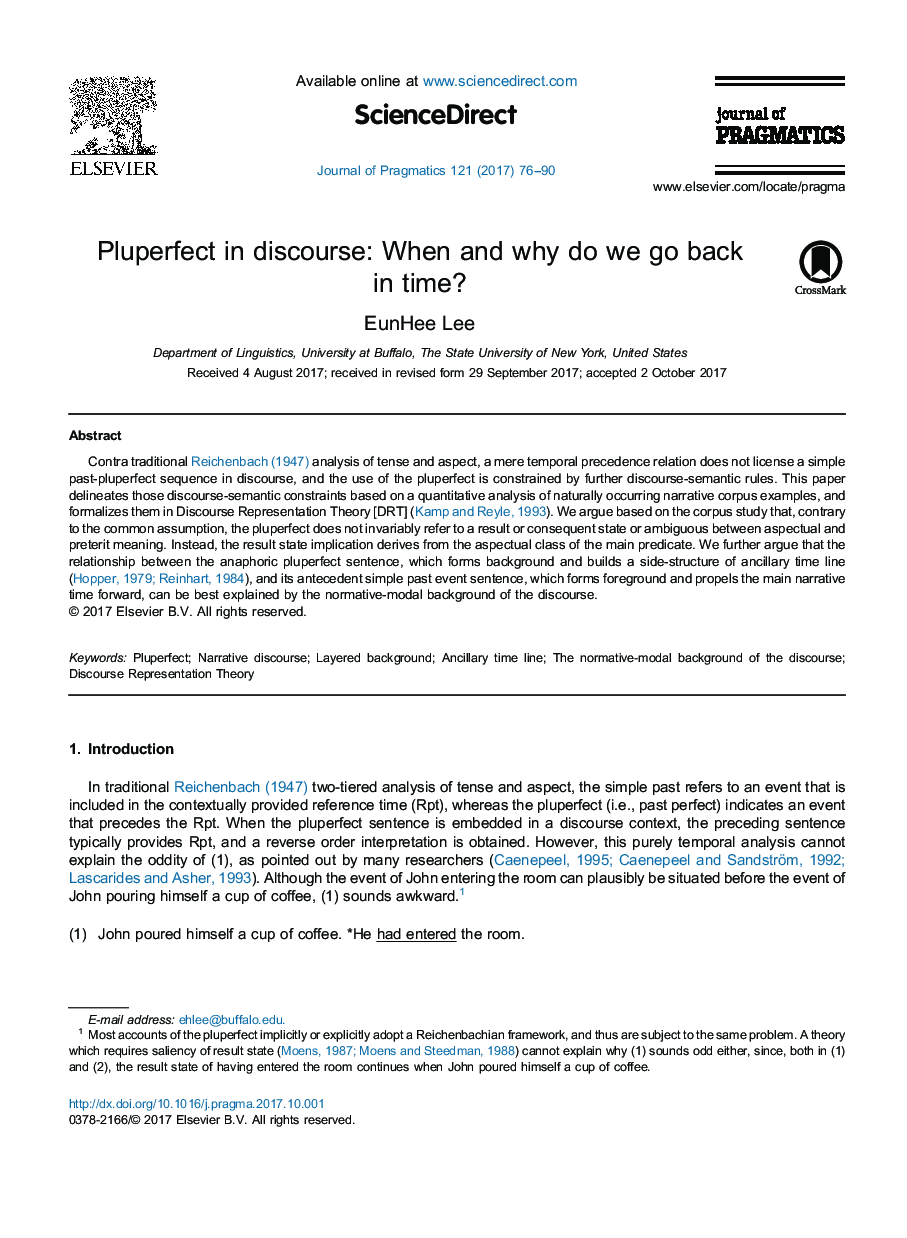| کد مقاله | کد نشریه | سال انتشار | مقاله انگلیسی | نسخه تمام متن |
|---|---|---|---|---|
| 5042605 | 1474679 | 2017 | 15 صفحه PDF | دانلود رایگان |
- A unified analysis of the pluperfect is proposed.
- A new account for the way in which the pluperfect becomes contextually relevant is offered.
- Aspectual and temporal categories such as pluperfect are not merely temporal.
- Pluperfect involves speaker's epistemic reasoning based on commonsense knowledge.
- The meaning of pluperfect is formalized using Discourse Representation Theory.
Contra traditional Reichenbach (1947) analysis of tense and aspect, a mere temporal precedence relation does not license a simple past-pluperfect sequence in discourse, and the use of the pluperfect is constrained by further discourse-semantic rules. This paper delineates those discourse-semantic constraints based on a quantitative analysis of naturally occurring narrative corpus examples, and formalizes them in Discourse Representation Theory [DRT] (Kamp and Reyle, 1993). We argue based on the corpus study that, contrary to the common assumption, the pluperfect does not invariably refer to a result or consequent state or ambiguous between aspectual and preterit meaning. Instead, the result state implication derives from the aspectual class of the main predicate. We further argue that the relationship between the anaphoric pluperfect sentence, which forms background and builds a side-structure of ancillary time line (Hopper, 1979; Reinhart, 1984), and its antecedent simple past event sentence, which forms foreground and propels the main narrative time forward, can be best explained by the normative-modal background of the discourse.
Journal: Journal of Pragmatics - Volume 121, November 2017, Pages 76-90
